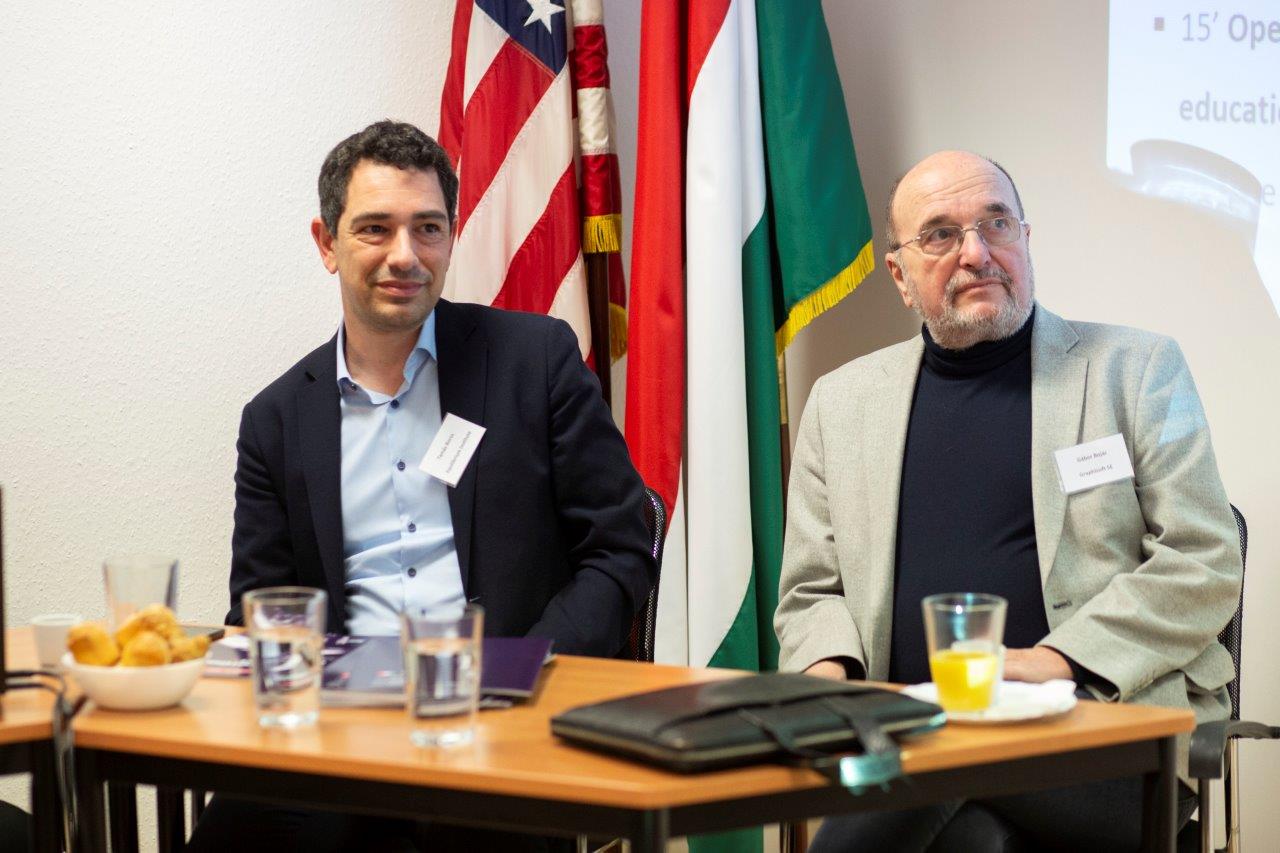AmCham Hungary, on the occasion of the International Day of Education celebrated on January 24, organized a closed-door discussion about the future of education in Hungary.
The aim of the event held on January 25 was to revitalize the discussion about education, to better understand how AmCham – and its members – can drive and support the improvement of the current education system.
The meeting took place with the participation of two high-level speakers: Mr. Gábor Bojár, founder of Graphisoft and the Aquincum Institute of Technology and Mr. Tamás Boros, Executive Director and co-founder of Equilibrium Institute, Hungary’s largest independent, future-oriented policy think tank.

After the welcome speech of Zoltán Szabó, President of AmCham Hungary, and Írisz Lippai-Nagy, CEO of AmCham, Mr. Boros, in his presentation introduced the main findings of the policy paper developed by the Equilibrium Institute entitled 'How to become a smart nation?’ that provides an analysis of the current situation of education and possible developments that could be made on the area.
Mr. Boros, based on the policy document, named five main challenges education is currently facing which are the following: lack of teachers, performance, efficiency, and autonomy related challenges, as well as the lack of vision. To address teacher shortage, he highlighted the need of a more dynamic income trajectory as a possible solution. Increasing the prestige of education is also another key area to make the teaching profession more attractive. Recruiting young professionals is more than necessary as today almost every second teacher is over 50.
Regarding performance, Mr. Boros stated that based on the results of recent PISA survey, Hungary falls into the mid-range of OECD nations. At the same time, however, we perform below the average levels of both, the EU and the Visegrad Four, in all subject areas measured by the PISA tests (reading, mathematical and natural science competencies). He explained this by the fact, that although some schools are outperforming, students at several schools fail to reach even the minimum requirements (a quarter of Hungarian children in 2018). This could refer to the growing gap between educational institutions. He also added that in Hungary, the early school leaving rate is particularly high amounting to 12% which ranks us sixth from the back in the EU. On this basis, it would be necessary to develop a value-based education system with a modernized vision.
This was followed by the presentation from Mr. Gábor Bojár, who highlighted that, education is an important economic resource in addition to its role in society. In this respect, education has a strategic role in ensuring economic competitiveness.
The meeting continued with an open discussion among the members moderated by Dr. Róbert Dobay, Chairman, AmCham HR Committee and CEO of Menedzsmentor in the framework of which it was expressed that well-educated workforce and therefore education is a priority for businesses operating in Hungary and they welcome further dialogue on the subject.
Photos about the event are accessible in the Gallery.